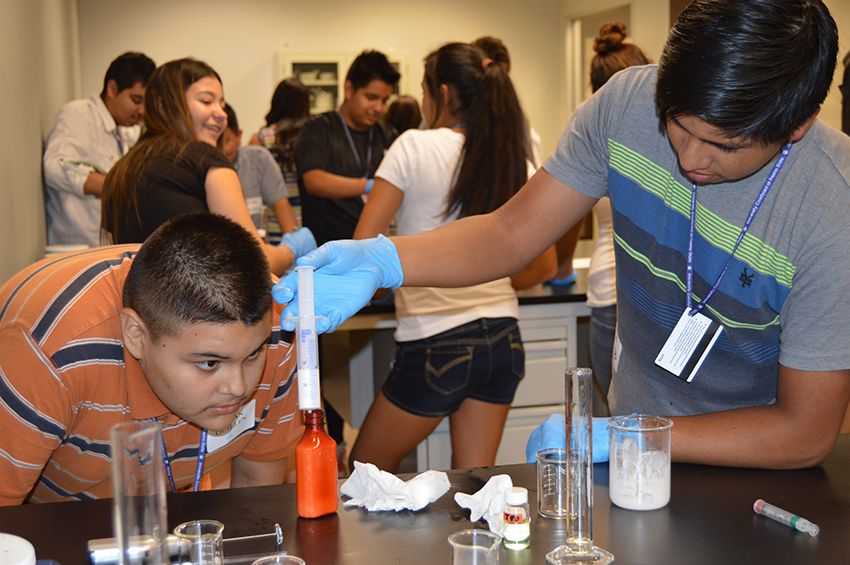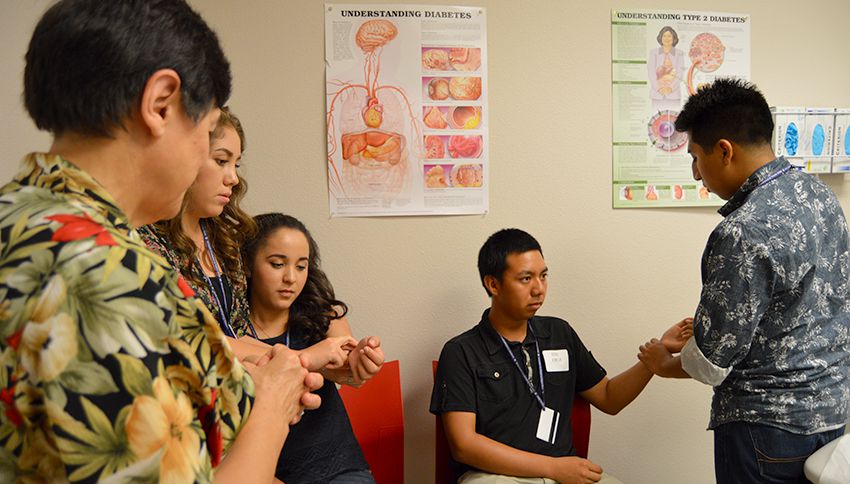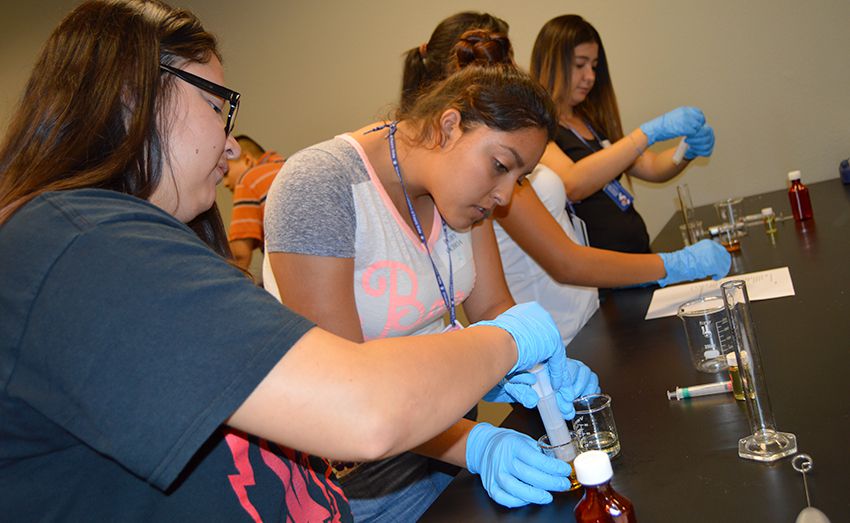Fresno County High School Students Visit CHSU For One Day Summer Learning Experience
July 22, 2015
On Tuesday, July 21, students from eleven Valley high schools received a special learning opportunity at the CHSU College of Pharmacy in Clovis. As part of the free summer program offered to students in the Migrant Education program through the Fresno County Office of Education, the Performance For Success Residential Program at Fresno State offered a new component this year focused on higher education and healthcare.
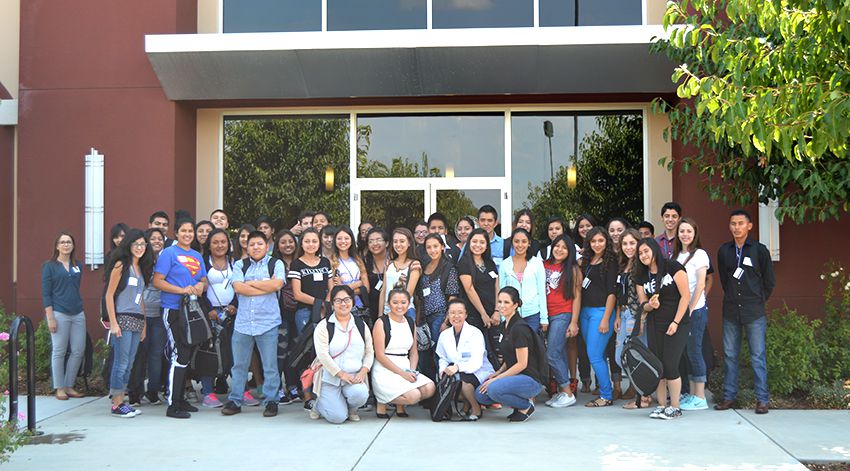
42 students ranging from freshman to seniors had a one day learning experience at California Health Sciences University to see firsthand the many areas of expertise practiced by pharmacists and other healthcare providers.
“Part of our vision at CHSU is to introduce high school students from all over the Valley, especially those in rural areas that have the greatest need for health professionals, to healthcare career opportunities and higher education,” stated Dr. Wendy Duncan, SVP for Academic Affairs, Provost and Interim Dean of Pharmacy. “We hope to inspire these students to achieve their fullest potential and help those that want to pursue healthcare to start preparing now for an easier transition into college.”
The students participated in hands-on group activities taking blood pressure and heart rates, learned how to compound and mix a liquid suspension, viewed demonstrations of various scientific equipment in the research lab, and engaged in a team-based learning “family feud style” exercises to help reinforce and retain the information.
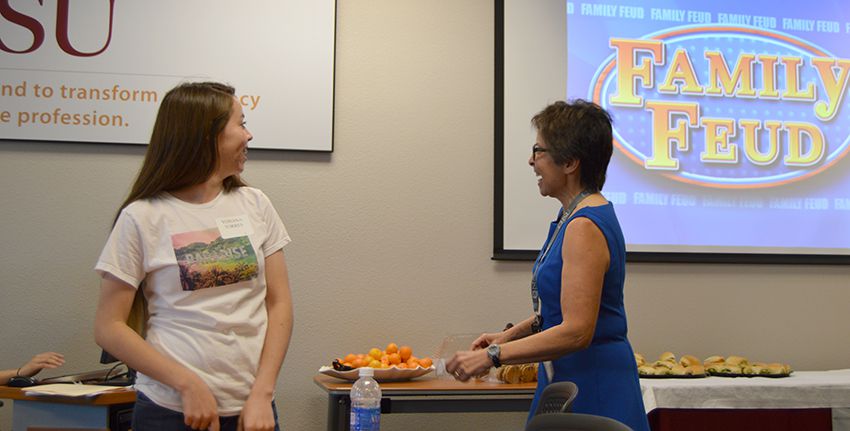
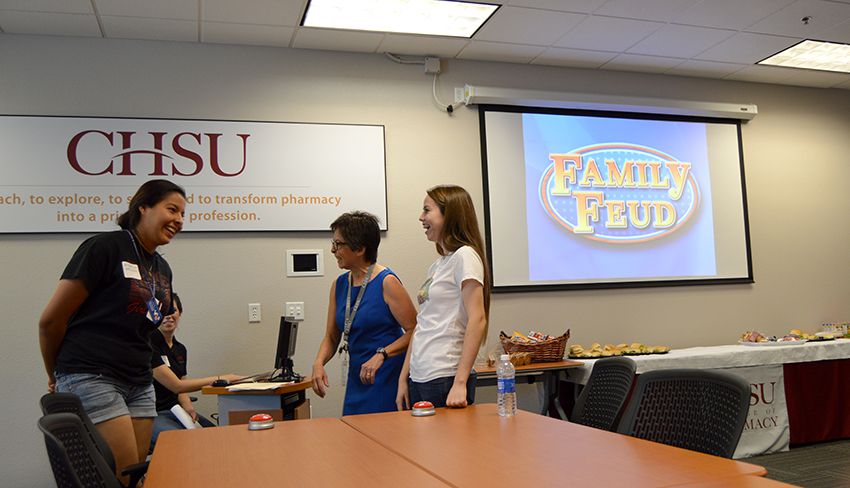
CHSU College of Pharmacy faculty directed the high school students throughout their learning experience, while CHSU pharmacy students assisted and mentored the students and shared their firsthand experiences in college and the path that lead them to pharmacy school.
Students also participated in nutrition and wellness sessions to understand the importance of healthy eating, staying active and preventative healthcare like vaccinations and well-checks. At the end of the learning experience, students received a backpack from CHSU with nutrition, wellness and preventative care flyers presented in English and Spanish to take home to their family and friends.
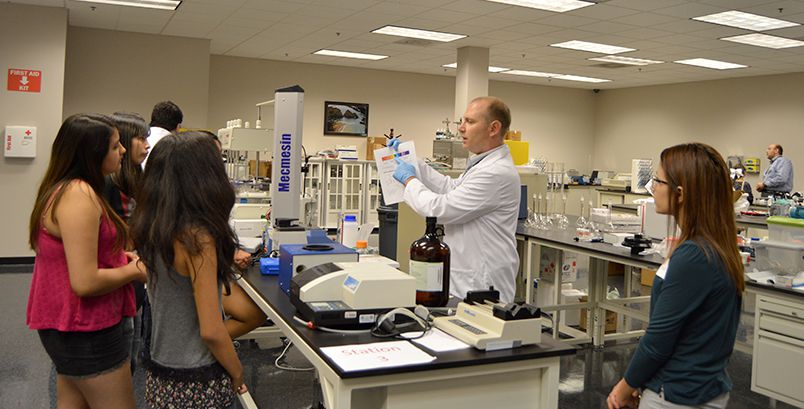
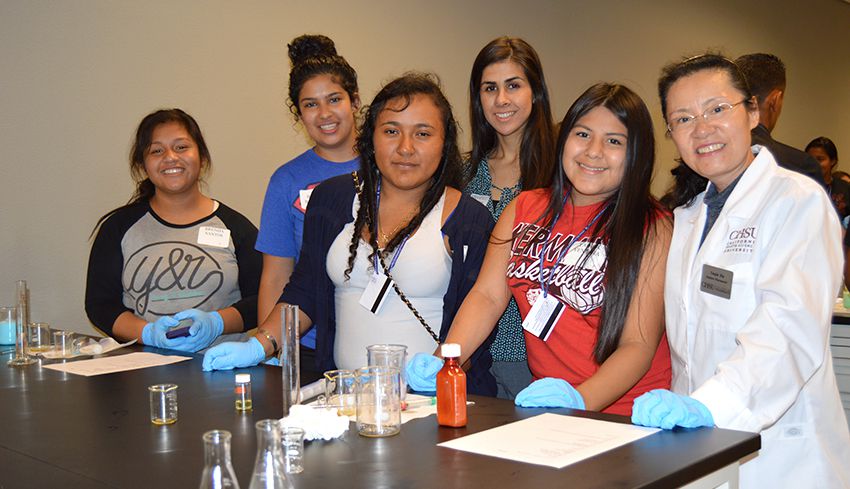
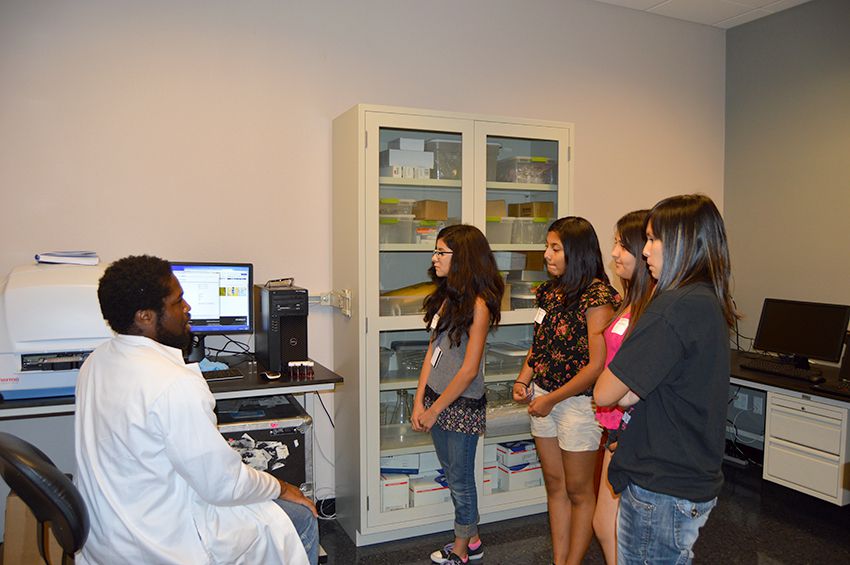
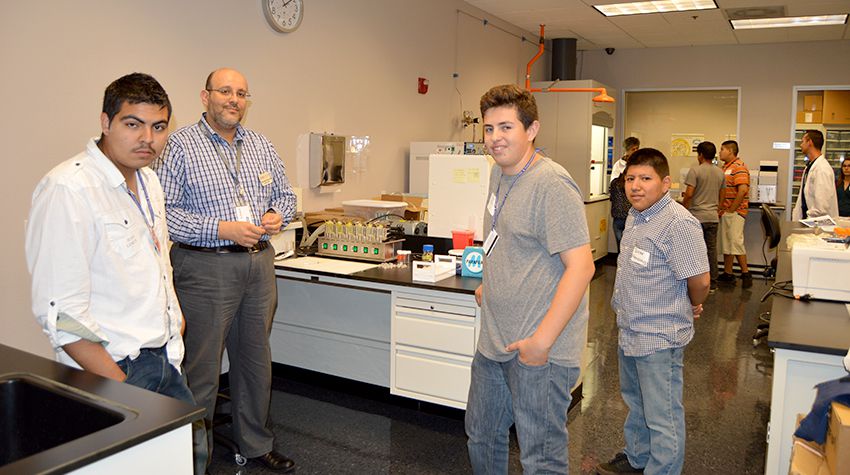
“We want to educate and empower these students to take their own health and the health of their families and communities seriously”, said Dr. Duncan. “With the shortage of primary care providers in our region, we are counting on the young people in our community to become our next health care providers. I hope to see many students from the Migrant Education Program at CHSU!”
About CHSU College of Pharmacy
CHSU’s Doctor of Pharmacy program is a four year, post-baccalaureate program and classes begin for the first and second classes of students this August. CHSU is now accepting applications for the third class of student pharmacists that will start in August 2016. Qualified applicants will be invited to a day-long interview and top candidates will be invited to begin their professional school career at the first pharmacy school in the Central Valley.
About FCOE Migrant Education Program
The Fresno County Office of Education Migrant Education Program is a federally funded supplemental program that provides educational and support services to identified Migrant children ages 3-5, 6-18 and 18-21 Out of School Youth (OSY) in the areas of Language Arts, Reading and Math during the regular year and summer/intersessions. These services help children of migrant workers overcome the disadvantages they face, one of which is disruption to their education due to mobility.
Migrant workers seek temporary or seasonal work in agriculture, fishing, or related industries, including food processing. They follow the growing seasons across the country and are largely responsible for the cultivation and harvest of fruits, vegetables, and many other food products. Many migrant workers have an average income below the national poverty line. While many migrant families consider California to be their home base, others come from other states and countries.
Migrant children may come from large families with inadequate living space and low incomes. Poor nutrition, housing, and sanitary conditions may cause a high incidence of health problems. Migrant children may have limited English skills and/or little experience with success at school. These problems, combined with irregular school attendance, often lead to overall frustration and low academic performance. This causes many migrant children to drop out of school in their teens.
Through the Migrant Education Program these children can be provided with supplemental educational and support services to help overcome their difficulties. Migrant children can close the achievement gap in education and develop skills and options for the future. In addition, the program provides opportunities for them to develop self-confidence and self-esteem.
